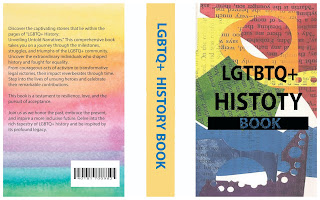Exploring LGBTQ Identities in Indian Culture
Exploring LGBTQ Identities in Indian Culture
Indian culture encompasses a multitude of LGBTQ identities, each with its own historical significance. Throughout history, transgender individuals have played prominent roles within our society. The Hijra community, often referred to as a "third gender," holds a sacred place in Indian culture. Hijras have been an integral part of religious and cultural ceremonies, acting as intermediaries between genders. Their acceptance reflects the inclusivity inherent in Indian culture.
In addition to the Hijras, other LGBTQ identities have existed across different regions and communities within India. For instance, the Aravanis of Tamil Nadu, who are transgender women, are celebrated during the annual Koothandavar Festival. This celebration acknowledges their cultural significance and reinforces the acceptance of diverse gender identities.
The Influence of British Culture on LGBTQ
During the colonial era, British culture heavily influenced social and legal norms in India, including those related to sexuality and gender. British Victorian values, with their strict binary understanding of gender and sexuality, were imposed upon Indian society. As a result, traditional Indian acceptance of diverse gender and sexual orientations was suppressed, leading to stigma and discrimination against LGBTQ individuals.
However, it is important to note that the British influence on LGBTQ discourse in India had unintended consequences. The LGBTQ rights movement in Britain, which gained momentum in the late 20th century, inspired Indian activists to challenge the oppressive laws that were remnants of the colonial period. Movements such as the Stonewall uprising in the United States and the decriminalization of homosexuality in various countries, including Britain, provided a framework and support for LGBTQ activists in India.
The struggles and achievements of LGBTQ activists in Britain demonstrated that change was possible, even in conservative societies. Indian activists drew inspiration from these international movements, utilizing their strategies and lessons to fight for LGBTQ rights within the Indian context
The Need for Awareness and Sex Education:
To truly understand LGBTQ identities in Indian culture, it is crucial to prioritize awareness and education. Stereotypes and misconceptions surrounding LGBTQ individuals often result in their marginalization and discrimination. By actively promoting awareness and providing comprehensive education, we can challenge these stereotypes and foster empathy and acceptance.
Integrating LGBTQ-inclusive curricula in schools and universities plays a pivotal role in dispelling myths and providing accurate information about diverse gender identities and sexual orientations. By incorporating LGBTQ perspectives into various subjects, we empower future generations to embrace diversity and cultivate an inclusive society. It allows students to understand the struggles, experiences, and contributions of LGBTQ individuals, promoting empathy and respect.
In addition to curricular changes, awareness programs, workshops, and resources serve as valuable tools for facilitating open dialogue and promoting understanding. These initiatives create safe spaces where individuals from all walks of life can come together to discuss LGBTQ issues, share personal stories, and learn from one another. By providing information, fostering dialogue, and challenging preconceived notions, we can work towards dismantling biases and fostering a more inclusive society.
Unraveling the Interplay: British Cultural Influence on LGBTQ Narratives in India
The influence of British culture on the discourse surrounding LGBTQ identities in India cannot be overlooked. During the colonial era, British imperialism imposed Victorian values and norms, which included rigid understandings of gender and sexuality. As a result, traditional Indian acceptance of diverse gender identities and sexual orientations was suppressed, and societal attitudes became more conservative and discriminatory.
However, it is important to recognize that the influence of British culture on LGBTQ discourse in India had unintended consequences. The LGBTQ rights movement in Britain, which gained significant momentum in the late 20th century, provided inspiration and support for Indian activists. Movements such as the Stonewall uprising and the decriminalization of homosexuality in Britain showcased the possibility of societal change and equal rights for LGBTQ individuals.
The struggles and achievements of LGBTQ activists in Britain offered a framework and valuable lessons for Indian activists in their fight for LGBTQ rights within the Indian context. The successes and visibility of LGBTQ individuals in Britain demonstrated that progress was possible, even in conservative societies. The legacy of British culture serves as a reminder that the pursuit of LGBTQ acceptance is a global endeavor, and the experiences and achievements of LGBTQ individuals in Britain continue to inspire and shape the discourse surrounding LGBTQ identities in India.




Comments
Post a Comment